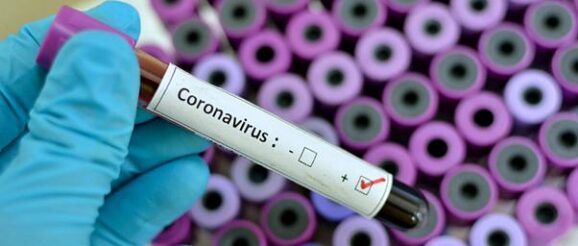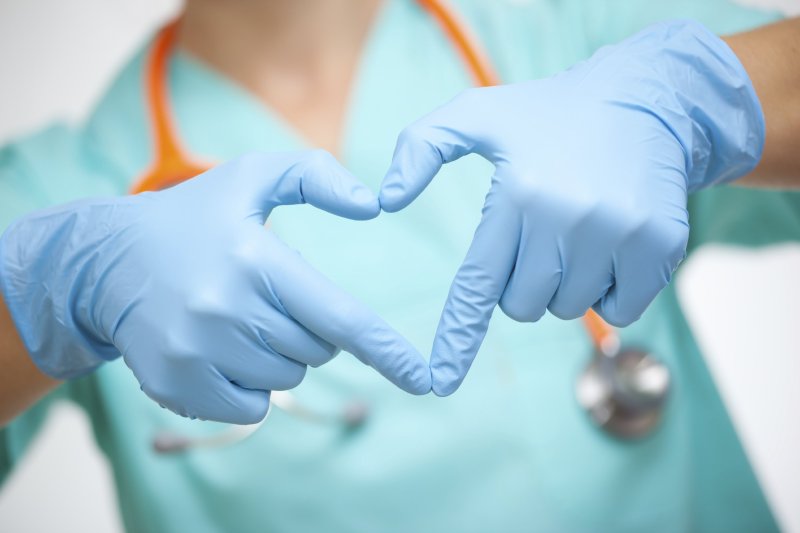Over 300 000 recoveries in SA – research and innovation key to fighting COVID-19!!!

Doctors, scientists and heroes working on the frontline have all learnt so much in the past four months, and it is these learnings that are making all the difference in South Africa’s fight against COVID-19!
South Africa (1 August 2020) – As of the 1st of August, South Africa saw another 16 570 recoveries in the country since yesterday! This is good news in the war against COVID-19.
As mainstream media and the government push the narrative that we are approaching half a million total cases, please remember that South Africa has surpassed the 300 000 recovery mark – 326 171 actually!!! We also currently have a 98% recovery rate in closed cases and after hovering between the 160 000 and 170 000 mark for 13 days (with active cases), we have dropped to 159 007.
This is good news for our country.
Here are today’s numbers:
- Recoveries: 326 171 (16 570 more than yesterday)
- Active Cases: 159 007 (5 749 LESS than yesterday)
- Deaths: 8 005 (193 more than yesterday)
Mobilising support from medical experts, solidarity, and harnessing science, research and innovation have been highlighted as critical pillars in the battle against the COVID-19 pandemic. These are some of the key outcomes from the virtual national conference on COVID-19, which took place on Friday, 31 July.
Hosted by the Higher Education, Science and Innovation Minister, Dr Blade Nzimande, and Health Minister, Dr Zweli Mkhize, the conference brought together scientists, governments, business and civil society from all over the world in open discussion towards a greater understanding of the impact of COVID-19 on society and the economy.
Under the theme ‘Harnessing science, technology and innovation in response to COVID-19: A national and international effort’, the conference focused on health innovations, technologies, and social and economic sustainability during and after the pandemic.
Speaking at the conference, Mkhize said despite the huge surge that made South Africa rank fifth highest in positive cases in the world, there are reasons to be hopeful.
“We have mobilised support from medical experts, who advise on protocols to put in place for containment, to control cluster outbreaks and to guide day to day management. Lessons on case management and discovery of effective medications such as dexamethasone, early use of oxygen, including preference for non-invasive oxygen support and other treatment regiments have resulted in a low mortality consistently below 2%,” he said.
According to Mkhize, the Western Cape passed the peak and maintained a plateau for the past two months, while early indications of promising decline are observed in the Eastern Cape and Gauteng.
“For these reasons, we have to intensify the non-pharmaceutical interventions and emphasise behavioural change to force reduction of new infections in all provinces. As such, we have established a multi-sectoral Ministerial Advisory Committee, which focuses on ground mobilisation for behavioural change,” said the Minister.
The focus on behavioural change seeks to forge collaboration with behavioural scientists, civil society, communities, traditional leaders, traditional healers, religious organisations, labour and all stakeholders who can affect change at a grassroots level.
The focus on behavioural change comes as the country continues to manage several concerns and challenges, including bed capacity, triaging mechanisms in facilities to ensure nosocomial transmission, and contact tracing for quarantine and isolation.
“We have now augmented our track and tracing functions to be supported by a digital system called COVIDConnect, where users can interact with the health care system on a digital platform for case identification, tracking and tracing and referral to quarantine, isolation or hospitalisation,” said the Minister.
Availability of personal protective equipment, Mkhize said, remains a strain due to high demand, over-utilisation, sometimes poor quality, corruption, price gouging and maldistribution. This, the Minister said, requires urgent attention and innovative stock surveillance solutions.
“This requires immediate resolution to protect our health workers, as they are the backbone of our health services, and also to avert labour disputes.
“We still need to work on increasing human resources for health of all categories, expedite the filling of vacancies and recruit new staff,” he said.
Solidarity
Addressing the conference, World Health Organisation Director-General Dr Tedros Ghebreyesus said in addition to science and technology, solidarity must drive communities and countries in their fight against the pandemic.
“WHO’s commitment is to bring scientists, researchers, innovators and nations together, in the spirit of solidarity, to bring shared solutions in this shared challenge. Science is the most powerful when it benefits everyone. After all, we are humanity; we share the same planet, and share the same hopes and dreams,” he said.
The conference further entered into three-panel discussions. The panel on health research discussed health innovation in support of COVID-19 therapeutics, diagnostics, testing and tracking. It also considered research experiences and research collaboration in managing COVID-19 and pandemics in general.
The two other panels focused on data modelling and analysis in managing COVID-19, and on the socio-economic impact of the disease and possibilities for economic recovery.
The odds of beating COVID-19 are much better right now!
Dr Mark Holliday, a General Practitioner in a large group practice in South Africa, has shared some insight that is both incredibly positive and hopeful in the fight against COVID-19.
Anxiety, stress levels, rumours and unhelpful personal theories have all shot up proportionately. But the information vacuum is being filled with more and more dependable and positive scientific information from trustworthy sources – as well as personal experiences of the virus as it increasingly hits closer to home.
This is good news!
“We’ve come a long way fast since March 5th, 2020. On that day, the first COVID-19 patient had much to fear. Then, very little was known about the contagion, and the limited data and scientific ambiguity made it difficult for the medical profession to confidently treat the virus with any certain belief of a positive outcome.”
“This July, we know a lot more. Thanks to the load on our northern hemisphere and Western Cape colleagues, today’s COVID-19 patients benefit greatly from the worlds experience and the short four months of steep collective learning.”
Here are all the good things that Dr Mark Holliday points out for South Africa and the world!

Lung Disease
Not all cases in respiratory distress have pneumonia or lung infections. A significant proportion of people who would have died on ventilators are now recognised as having a clotting disorder that blocks the blood vessels feeding the lungs, thereby causing shortness of breath. We also have a whole new generation of anti-clotting drugs that can help these patients as well as those whose clots are affecting other organs.
Monitoring
We have pulse oximeters readily available that can be used to home monitor any decline in a patient’s oxygen levels. This means that we can action more advanced treatments cheaply much sooner than before. We have learnt that laboratory tests such as LDH, CRP and D-Dimer can usefully predict downward trends patients.
Oxygen
The provision of Oxygen to severely ill patients remains the cornerstone of advanced patient care. Mass nursing facilities such as Nasrec have being prepared for this purpose. ICU treatment is no longer the cut and paste approach of putting patients on a ventilator with a previous 50% mortality rate. We have new alternate ways of oxygenating the severely sick; prone nursing (face down) and high flow techniques of oxygenation can perfuse compromised lungs without ventilators.
Thrombosis
Anti-clotting treatments and steroids (such as Dexamethasone) are now a regular part of the ICU doctor’s weaponry to combat the Cytokine storm. Another old drug, Colchicine, has recently been shown to help prevent micro clots in the lungs. GP’s more experienced with Covid-19 are starting to apply these medicines at home to prevent the need for hospitalisation.
Drugs old and new
Many drugs have been tried to treat COVID-19, and we now have experience of what does and does not work. Quinine based drugs and Zithromax in high doses have no place in ICU’s. New drugs such as Avigan and Remdesivir have been proven to shorten ICU stays by up to four days. Anti-inflammatories such as Ibuprofen and ACE inhibitors, originally considered dangerous have now been given a clean bill of health. Observational studies have suggested certain drug categories such as PPI’s are associated with worse outcomes. Recent evidence has demonstrated that the hormone Melatonin in high doses may be beneficial. Knowledge changes daily in this epidemic as new information evolves.
Home treatment
Community resources such as General Practitioners (GPs) have collaborated to share knowledge and experience to provide the latest in care for an overburdened health system. Casualties and hospitals are scary places for patients, and our GPs have risen to the challenge; these doctors constitute the primary interface with patients. Virtual forums and webinar lectures actively keep GPs abreast of new information and treatments. GP’s have developed effective preventative strategies that are readily available, and they bravely deal with Covid-19 patients face to face. Some have already succumbed to the infection themselves.
Symptoms
We are recognising early specific symptoms peculiar to COVID-19 such as loss of taste and smell, COVID-19 toes and chilblains, specific rashes, conjunctivitis and cold sores. This knowledge gives us a head start in recognising, testing, treating, isolating and quarantining our patients.
Shorter Quarantine
New evidence suggests that the virus is not shed beyond day eight of an infection. If confirmed, this will be good news and will shorten the duration of isolation and quarantine. Amended guidelines will hopefully follow soon.
Better Tests
New tests have just been approved in South Africa that will be able to confirm those who are immune. A new instant breathalyser type test is starting production, which will give instant results in acute infections.
Conclusion
The unknown, conspiracy theories, flaky news and the media hype have all helped to fuel significant human fear for the past few months.
Anxiety, stress levels, rumours and unhelpful personal theories have all shot up proportionately. But the information vacuum is being filled with more and more dependable and positive scientific information from trustworthy sources – as well as personal experiences of the virus as it increasingly hits closer to home. Most GP’s are knee-deep in the fray and are now far better equipped to diagnose and treat COVID-19 cases than a few months back.
And the chances of beating COVID-19 now are much better than they were in March.
Sources: SA Government | Dr Mark Holiday | World HEalth Organisation | Good Things Guy
Don’t ever miss the Good Things. Download the Good Things Guy App now on Apple or Google.
Have something to add to this story? Share it in the comments or follow GoodThingsGuy on Facebook & Twitter to keep up to date with good news as it happens or share your good news with us by clicking here.
Click the link below to listen to the Good Things Guy Podcast, with Brent Lindeque – South Africa’s very own Good Things Guy. He’s on a mission to change what the world pays attention to, and he truly believes that there’s good news all around us. In the Good Things Guy podcast, you’ll meet these everyday heroes & hear their incredible stories:
Or watch an episode of Good Things TV below, a show created to offer South Africans balance in a world with what feels like constant bad news. We’re here to remind you that there are still so many good things happening in South Africa & we’ll hopefully leave you feeling a little more proudly South African.
The post Over 300 000 recoveries in SA – research and innovation key to fighting COVID-19!!! appeared first on Good Things Guy.
